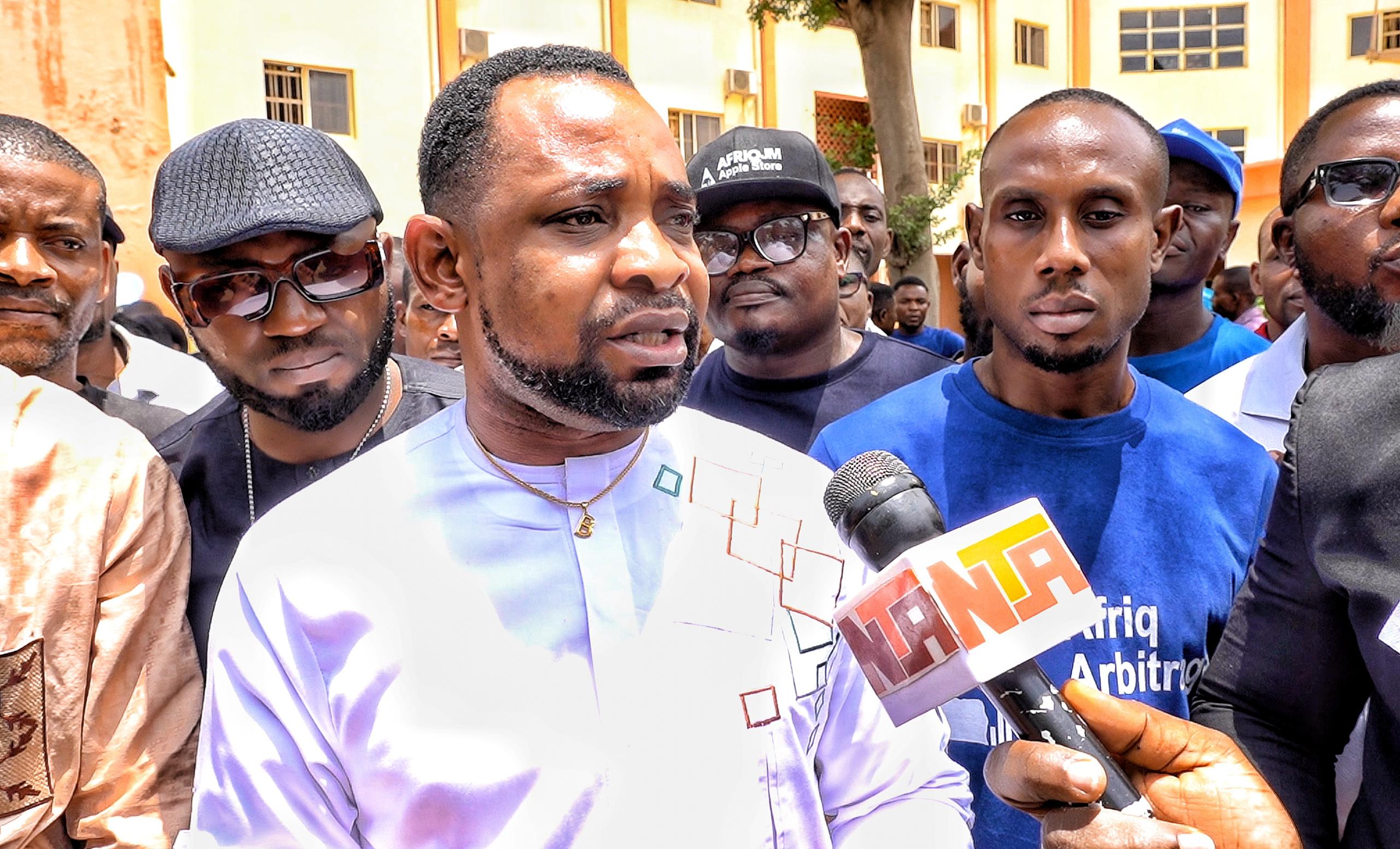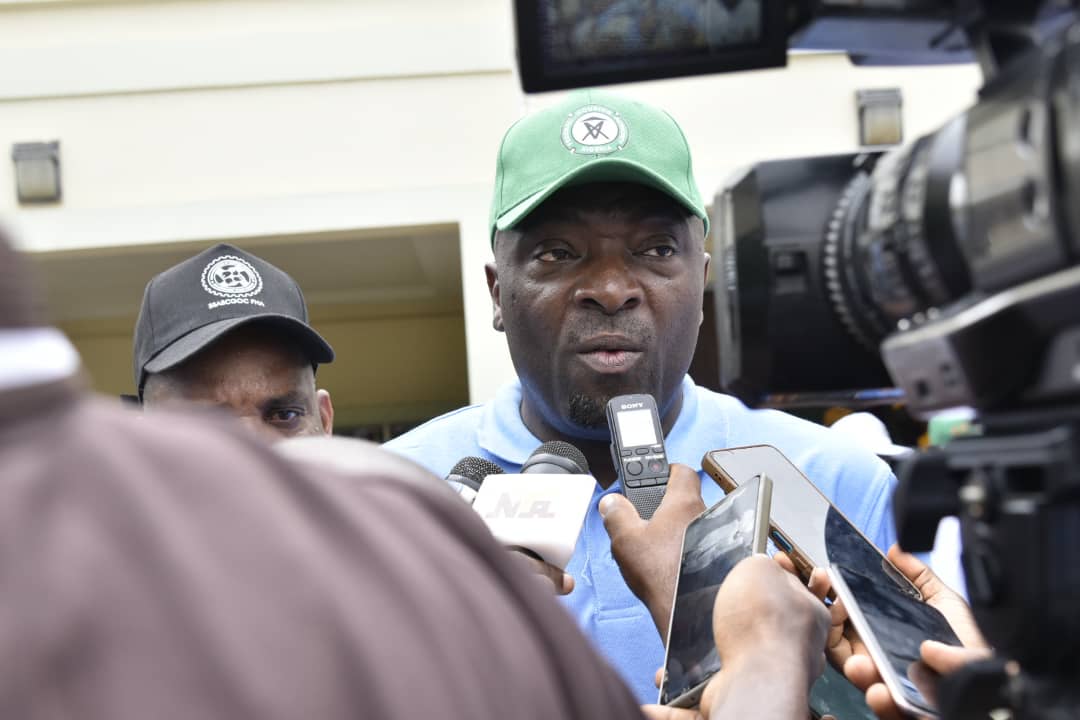$87m Theft: Investors of Afriq Arbitrage System Boos,Jeer At Abayomi, Remanded in Suleja Until Bail Perfection As Court Adjourns Till 14th ( Video)
The arraignment of Abayomi Oluwasesan over the lingering theft saga to the tune of $87m commenced today with the review of his bail conditions.
Abayomi Segun Oluwasesan who allegedly committed the heinous crime of defrauding the leading global crypto space known as Afriq Arbitrage System was arraigned alongside his wife at the FCT High court, Jabi in Abuja.
Earlier, the defendants’ lawyer appealed for leniency on the stringent bail condition on behalf of Abayomi OluwaSesan citing their prolonged detention and promising their availability for trial if granted bail. However, the complainant lawyer, Sidi Abdulrasheed, opposed the bail request, highlighting previous instances where the defendants had allegedly fled after being granted bail.
Responding to the bail review, the presiding judge, Ms. Idris insisted the earlier bail conditions remain valid with little modification. It would be recalled that the conditions initially given included provision of two sureties each with 500 million Naira, owning property in Maitama, and also two directors in the federal civil service. Additionally, the sureties must deposit the title documents of their properties in court. However, in his ruling today, he said the sureties should be owners of properties anywhere within the FCT and worth 400 million naira and above. He also reiterated that the two directors should be serving directors and the properties be valued by a licensed estate valuer registered with the federal government.
Thereafter, he adjourned the proceedings till 14th ,15th and 16th of May 2024 for speedy trials.
Speaking to Jesam Micheal, the CEO of Afriq Arbitrage System (AAS) after the court proceedings, he clarified the wrong narratives about the case. He said the appearance of Abayomi in court has justified the truth that he defrauded the company to the tune of $87m and that he has confessed to his crime. He narrated how Abayomi who was entrusted with the platform while he went for liver transplant tempered with the systems and defrauded the community of the staggering sum of $87m. He stated that all he is after is for him to refund the stolen funds.
Also, the complainant’s counsel, Barrister Obeten revealed that justice will be served at the court as the suspect has allegedly admitted to committing the crime.
Meanwhile, there was mild drama in court as thousands of investors stormed the court today, booed and jeered at Abayomi and his wife. Their anger was not unconnected to the fact that his actions gravely affected them and their means of livelihood.
It would be recalled that Abayomi and his wife were tracked to an estate in Lagos and brought back to Abuja on Sunday, March 24th, 2024 over the lingering financial scam to the tune of 87 million dollar and criminal activities he perpetrated against AAS and the CEO, Jesam Micheal.
The arraignment of Abayomi by the IG of police at the Federal High Court in Abuja witnessed a significant development on Thursday, March 28th, 2024, as the case involving the alleged theft of 87 million dollar by Abayomi OluwaSesan charged by the Inspector General of Police, Kayode Egbetokun, proceeded with significant deliberations.
The accused individuals were charged for purportedly accessing millions of subscribers’ investments at the Afriq Arbitrage Company’s online trading platform until October 9th, 2023.













 Business7 months ago
Business7 months ago
 celebrity radar - gossips5 months ago
celebrity radar - gossips5 months ago
 celebrity radar - gossips4 months ago
celebrity radar - gossips4 months ago
 Business3 months ago
Business3 months ago













